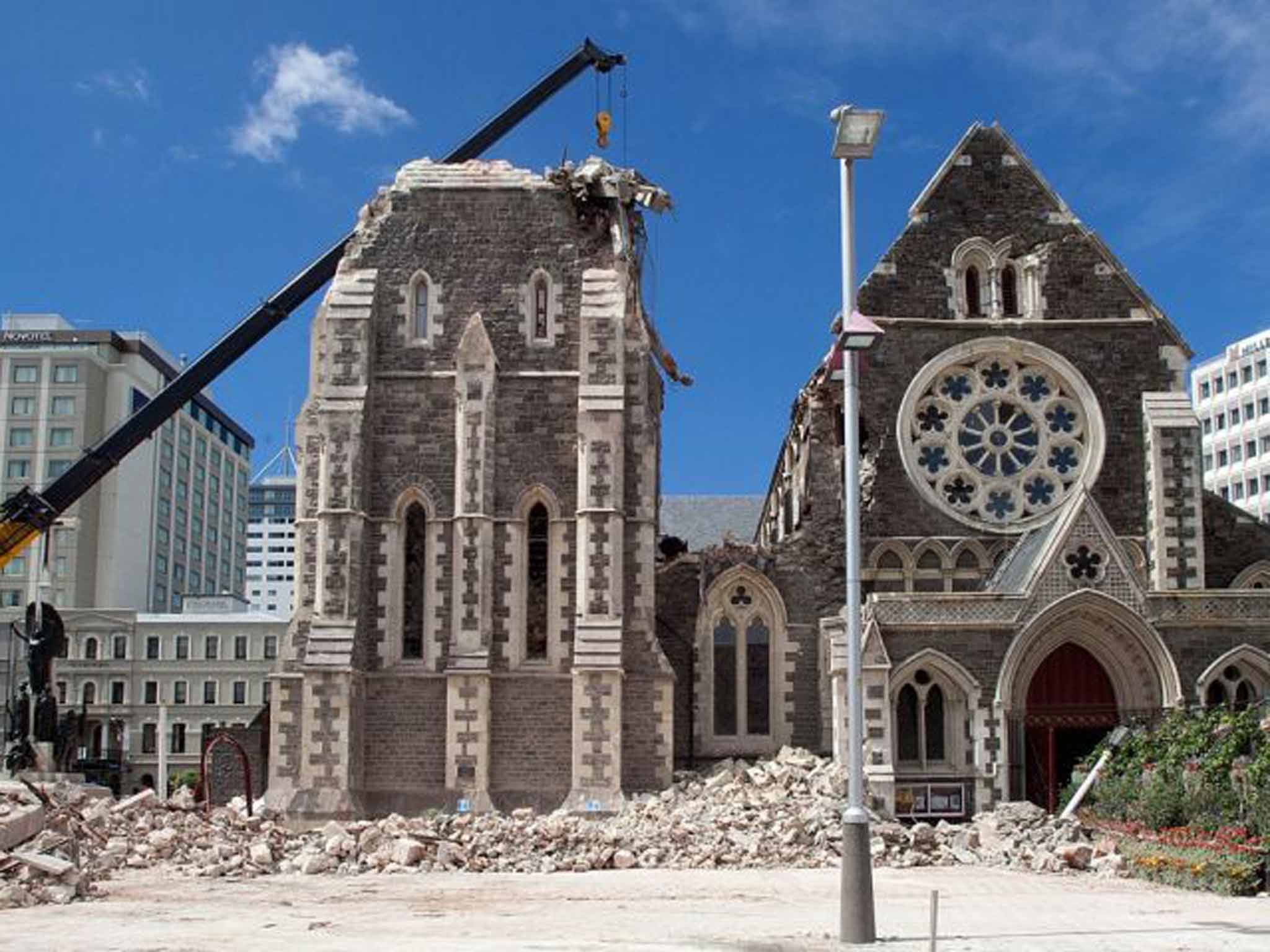Christchurch: Centre stage in the Battle of Britain
This weekend marked the fourth anniversary of the earthquake which tore the city asunder

The standard soundtrack to a resurrection story tends to be the gentle rumble of a stone being rolled away, or maybe a choir of angels singing in the heavens. But when the latest comeback special clicks into focus on the South Island of New Zealand, it will be to a raucous cacophony as the eternal sporting fight between England and Scotland takes another turn.
In some ways, there could be no more incongruous a venue for this meeting than the pretty city of Christchurch. Britain's two biggest brothers do not have much shared history when it comes to cricket – and neither team is likely to win the one-day World Cup of which the fixture is a part. This rare confrontation over stumps and bails will be a strictly regional sideshow in the middle of an international tournament – the sort of enthusiastically waged, but inconsequential, face-off that would be better suited to a warm day in Durham.
Yet in other ways, Christchurch is precisely the place for a game of such rivalry – not least because it helps to make up for lost time. Yesterday marked the fourth anniversary of the earthquake which tore the city asunder, in February 2011. Christchurch lost a huge amount on that unsuspecting Tuesday – 185 people were killed, and the tremor ripped the steeple from the 1864-built cathedral. Then came the aftermath, and a sense that the city disappeared from view. It had been due to host a raft of crucial matches at the 2011 Rugby World Cup – but these were inevitably moved to other locations. Come the October of that year, New Zealand would celebrate as its famous All Blacks seized the trophy – with its second biggest metropolis having played no part in the proceedings.
By a quirk of circumstance, I found myself on South Island the week after the quake. It was an eerie time to be there, but the response was both stoic and cheerful – every road I drove seemed to feature a message of support or a fund-raising event. This assisted the city's recovery – though the process is incomplete. Many homes still need repairs, and the cathedral has been deemed too damaged for reconstruction. Since 2013, the "Cardboard Cathedral" – a temporary structure of no little elegance – has been tending to the faithful.
In this context, a few overs of cricket may prove pertinent moments. Sport is of no import compared to loss of life, but staging part of a key global competition in Christchurch – especially so near to the disaster anniversary – seems like the closing of a circle.
Aside from tonight's Battle of Britain, the city's Hagley Oval has already framed the World Cup's opening hurrah – last week's contest between New Zealand and Sri Lanka. This will not fix the cracked walls in houses on the faultline – but with an arc of ball to boundary, Christchurch can at least feel it is back on the map. Tourists should too.
Join our commenting forum
Join thought-provoking conversations, follow other Independent readers and see their replies
Comments
Bookmark popover
Removed from bookmarks